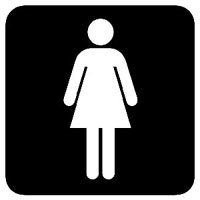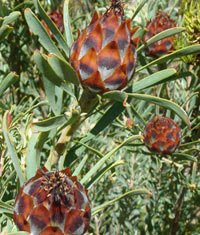
Marketing and tourism people talk about the 'pink rand'. Basically, gay money. Disposable income that can be used on lifestyle consumer items: travel; home decor; appliances etc. It's supposed to pack a powerful pink punch. So, why aren't more SA companies wooing the gay market?
I can't think of a single, mainstream advert in the national press or on any medium which is designed to get me to take note and encourage me to spend my money there. All I can think of by way of explanation is the no-one is brave enough to target the gay rand openly, because we still have a bigoted society that advocates for an openly homophobic man, Jacob Zuma, to become our next president.
Ok, so that's very sad. Look how Cape Town has benefitted from pink money? They've been clever about their strategy and it has paid off. We've obviously got a long, long walk to freedom.
So, even if there aren't big adverts appealing to the market, the one sector that should be very sussed and seductive towards gays and lesbians is the tourism sector. Right?
Not so. Maybe in the Mother City they are, but in KwaZulu-Natal, I constantly hear of cases where gay couples book for a weekend away somewhere and the place assumes that if there are two, they must be a straight couple. One friend who was trying to book a romantic birthday weekend away at a spa was asked "and would your wife like any treatments?" Er, no! But my boyfriend certainly would! He actually had to tell her that his partner was another man. "Oh," she said in reply.
How outdated that we need to out ourselves - much to the surprise of the venue hosts. They should be trained to assume nothing. If I book a double bed, don't rush around when I arrive with my girlfriend and give me a room with twin beds. Please, I know what I want.
What I am trying to say is that the tourism sector, from the smallest B&B to the biggest hotel, needs to wake up and smell the pink rand. It's a wonderful, lucrative market. Just show us some real hospitality!
How the tourist accommodation sector can become more gay-friendly. Some practical tips:
1. When someone books - it doesn't matter who - don't assume it's Mr and Mrs. Use gender neutral language.
2. If you ask for names and figure out that the two who are sharing a room are of the same sex, don't assume they're friends. They may be partners and they will want a double bed.
3. Keep your personal feelings out of it. Don't give us 'oh!.." or attitude.
4. Realise that we will talk about our experience and spread the word that yours is gay friendly / non gay friendly venue.












